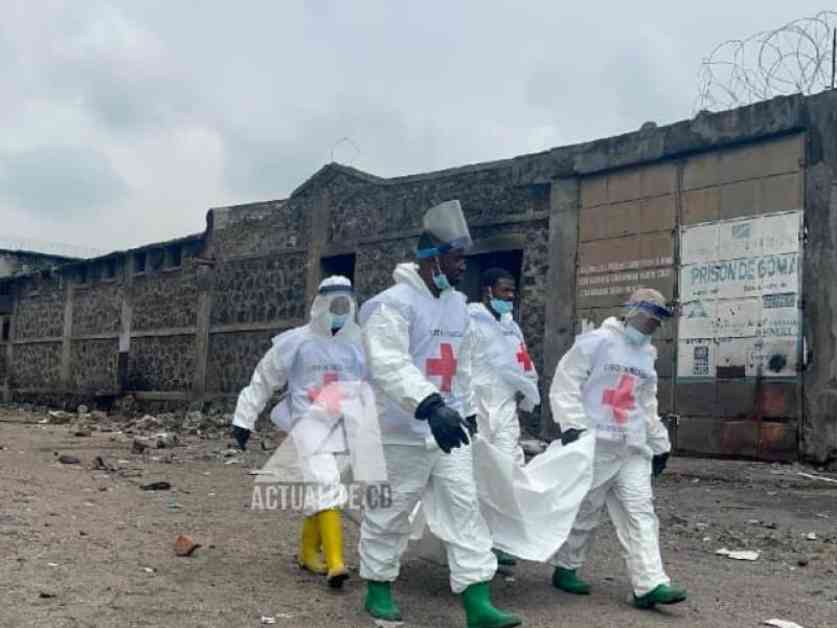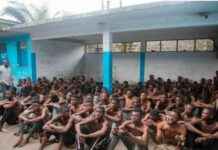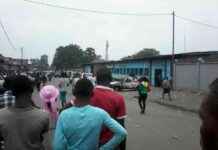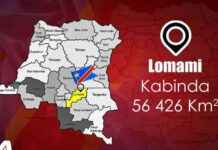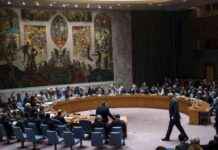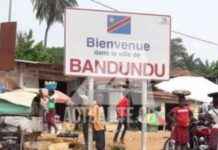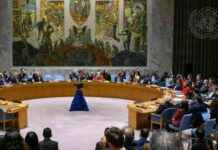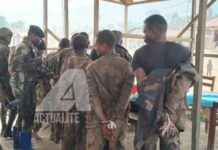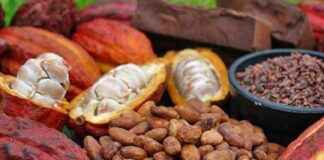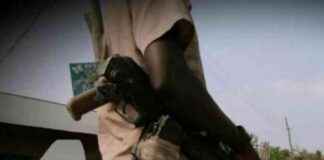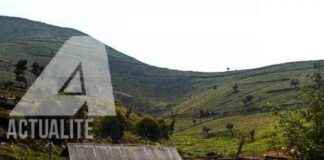Cholera Outbreak Strikes Goma, DRC: Rising Concerns Amidst Post-Conflict Challenges
The city of Goma, recently rocked by fierce battles between the Armed Forces of the Democratic Republic of Congo (FARDC) and M23 rebels, now faces a new threat – a cholera outbreak. Humanitarian sources report suspected cases of the disease emerging in and around Goma, with one death already confirmed.
The epidemic has taken hold, particularly in the MONUSCO camp, where dozens of disarmed Congolese soldiers have sought refuge. “Suspected cases of cholera have been reported within the MONUSCO camp in Goma, where many disarmed FARDC soldiers have sought refuge. To date, one cholera-related death has been recorded, with 24 suspected cases currently under treatment. Rapid screening tests have confirmed three cases among them. Further diagnosis is underway,” states a report from the Office for the Coordination of Humanitarian Affairs (OCHA).
The World Health Organization (WHO) has swiftly implemented response measures. “These include isolating and treating affected individuals, as well as distributing water, hygiene, and sanitation kits to camp occupants. The health cluster has raised the alarm over a worsening cholera epidemic in and around Goma, with 420 cases and 1 death reported over two consecutive weeks (from February 3 to 15), accounting for more than a third of the 1,280 cholera cases recorded in the entire North Kivu province since the beginning of the year,” the same source reveals.
Goma, struggling to return to normalcy following the war that led to immense humanitarian consequences, finds itself grappling with significant challenges. The environment has been marred by considerable uncleanliness, water and electricity supply disruptions lasting several days. Displaced persons’ sites around Goma have been destroyed, compelling the local populations to return to their original habitats in unsuitable conditions.
Expert Insights: WHO’s Response and Key Concerns
In response to the cholera outbreak in Goma, the WHO has been at the forefront of implementing crucial measures to contain and combat the disease. Dr. Smith, a seasoned epidemiologist with the organization, emphasizes the critical importance of swift action in such situations. “Cholera outbreaks can escalate rapidly, especially in areas with compromised sanitation and limited access to clean water. The immediate isolation and treatment of cases, coupled with robust hygiene and sanitation efforts, are key to preventing further spread of the disease,” Dr. Smith underscores.
As the situation unfolds in Goma, concerns remain high regarding the potential escalation of the cholera epidemic. With the city already facing significant post-conflict challenges, the impact of the outbreak could be devastating for the vulnerable populations in the region. Continued vigilance, rapid response, and sustained support from the international community are essential in mitigating the risks and safeguarding the health of those affected.
Rebuilding Goma: Overcoming Adversity and Resilience
The resilience of the people of Goma shines through as they work tirelessly to rebuild their lives amidst the aftermath of conflict and the looming threat of a cholera outbreak. From restoring basic services like water and electricity to rebuilding homes and communities, the journey towards recovery is fraught with challenges yet fueled by hope and determination.
As families reunite and communities come together to support one another, a sense of unity and solidarity emerges in the face of adversity. The rebuilding process is not just about physical structures but also about healing the wounds of war and fostering a sense of belonging and safety for all residents of Goma.
In the midst of uncertainty and hardship, the spirit of resilience prevails, guiding the people of Goma through turbulent times towards a brighter and healthier future. As they navigate the complexities of post-conflict recovery and disease outbreaks, their unwavering strength and unity serve as a beacon of hope for a community on the path to healing and renewal.
